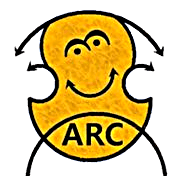
The two main opinions are:
Spiccato Training
Spiccato bow-strokes are most often performed when playing continuous notes in alternate directions.
(Down-Up-Down-Up, etc.)
Fine orchestra players have various ideas on the best way to approach Spiccato.
Debates about terminology and which approach is considered a “true spiccato” always leads to even more opinions. In an orchestra, string players in the same individual string section, perform music together at the same time. The challenge is to begin together and continue performing in perfect synchronicity.
Due to this ensemble necessity, we will learn the most standard orchestral bowing approach and play spiccato from the string. Regardless of the method, the result of spiccato is to spring notes off the string, triggering each bow motion into the next bow direction.
Everyone has gained needed experience locating the balance-point, finding the contact point, and experimenting with ricochet tactile bow-hand sensations. These skills have prepared you to progress and learn spiccato bowing skills.
Spiccato is required of advanced players.
Let’s learn how to create and control Spiccato. It’s fun!



From the STRING — Beginning on the string and then allowing the string’s kick-back resistance to trigger bow-stroke rebound.
From the AIR — Starting above the string and initializing the motion of repetitive bouncing, much like ricochet.
Introducing the Bow Parts of the Bow The Stick Horse-Hair The Tip The Frog The Winding How the Bow Works
Rosin Preparing to Hold the Bow Stick Training Exercises Bowing Terminology Down-Bow Up-Bow
Bow-Hand Set-Up Finger Tasks and Functions The Thumb Meet ARC Finger Segments The Index-Finger
Bow-Hand Pronation The Center-Finger and Ring-Finger Bow-Hand Fulcrum Ring-Finger Propulsion Bass Bows
Pinky Bow-Tasks ‘Casting’ the Bow-Hand Bow-Wrist Tasks Rotational Inertia Arco Clay Smile Exercise Meet ANGLE
The Bow-Arm Box The Shoulder Arc Bow Contact-Point String Lanes Bow-Segment Mastery Bowing Exercises
Finding the Bow Contact-Point “Painting With Sound” Bowing Exercises Menu Bow Taps Bowing Traditions
Perform Down-Bows Perform Up-Bows The Art of the Bow-Change Articulations Staccato Legato
Mastery Checkpoint One Building Bow Control Bow Speed and Bow-Arm Motion Bow Planning and Distribution
Slow Moving Bow Strokes Individual Bow Segments Traveling the Bow Bowing Dynamics Mastery Checkpoint Two
Advanced Techniques Slurs and Articulations Slur Training Locating the Bow’s Balance Point Ricochet and Spiccato
Exploring Ricochet Ricochet Control Spiccato Training Spiccato Control Spiccato Brush Strokes
Multiple String Crossings Virtuosic Bow Strokes Arpeggio Bowing “Flying” Staccato Mastery Checkpoint Three
SCROLL’s List of Bow Strokes
Rosin Preparing to Hold the Bow Stick Training Exercises Bowing Terminology Down-Bow Up-Bow
Bow-Hand Set-Up Finger Tasks and Functions The Thumb Meet ARC Finger Segments The Index-Finger
Bow-Hand Pronation The Center-Finger and Ring-Finger Bow-Hand Fulcrum Ring-Finger Propulsion Bass Bows
Pinky Bow-Tasks ‘Casting’ the Bow-Hand Bow-Wrist Tasks Rotational Inertia Arco Clay Smile Exercise Meet ANGLE
The Bow-Arm Box The Shoulder Arc Bow Contact-Point String Lanes Bow-Segment Mastery Bowing Exercises
Finding the Bow Contact-Point “Painting With Sound” Bowing Exercises Menu Bow Taps Bowing Traditions
Perform Down-Bows Perform Up-Bows The Art of the Bow-Change Articulations Staccato Legato
Mastery Checkpoint One Building Bow Control Bow Speed and Bow-Arm Motion Bow Planning and Distribution
Slow Moving Bow Strokes Individual Bow Segments Traveling the Bow Bowing Dynamics Mastery Checkpoint Two
Advanced Techniques Slurs and Articulations Slur Training Locating the Bow’s Balance Point Ricochet and Spiccato
Exploring Ricochet Ricochet Control Spiccato Training Spiccato Control Spiccato Brush Strokes
Multiple String Crossings Virtuosic Bow Strokes Arpeggio Bowing “Flying” Staccato Mastery Checkpoint Three
SCROLL’s List of Bow Strokes



